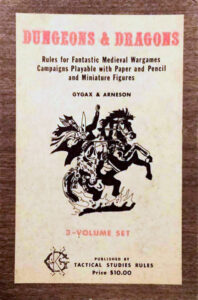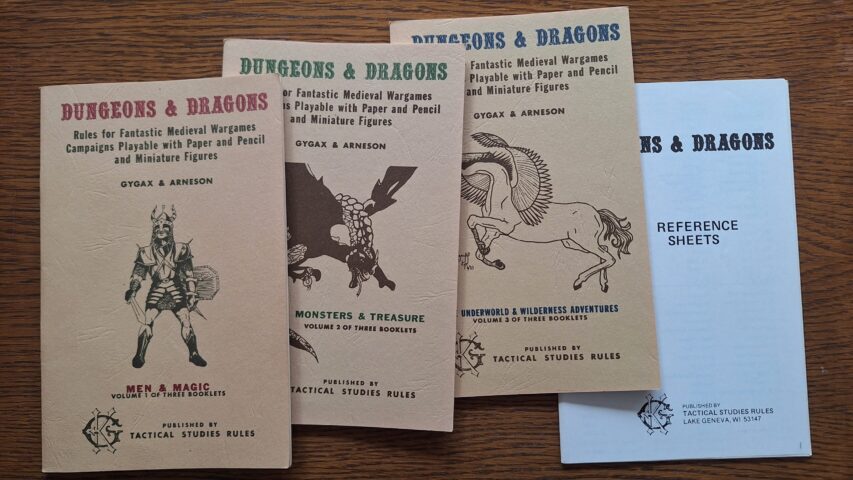Celebrating D&D
Back in 1980, a reporter who asked if D&D was only a passing fad learned that “Gygax and Blume think not. D&D, they say, will last fifty years or more.” As unlikely as it was in the 1970s that this esoteric offshoot of the wargaming hobby might become a pop-culture phenomenon, it is just as unlikely that in 2021 the game would be more popular than ever. As a new generation grows up playing the game, it may be that the true impact of Dungeons & Dragons has yet to be felt.
—Jon Peterson, Game Wizards
This year we celebrate the 50th anniversary of DUNGEONS & DRAGONS. In 1974, it was a new kind of game, created at the intersection of wargames and fantasy and science-fiction literature. It came to be called a role-playing game, enjoyed by millions over these five decades.
So this year, we celebrate the game and the millions of fellow players with whom we share the common experience: fantastic adventure in make-believe worlds. We celebrate friends found and friendships made firmer. We celebrate a simple connection to a diverse array of people from all around the world. A stranger is not so strange when we both know what it’s like to explore a dank dungeon, torch in hand, avoiding traps, solving puzzles, and fighting monsters.
We also celebrate D&D’s several editions over the years as well as the hundreds—thousands—of other role-playing games that followed it. One of its strong points is that D&D is a toolbox. With it, we can have an adventure, make a string of adventures into a campaign, and create an imaginary world full of adventures. We are given license to change the rules as desired, and in so doing, perhaps, make a new game altogether. It is so malleable.
We celebrate the game’s cultural impact. From a niche 1970s game that broke out of its intended wargamer audience by the end of the first print run to a game played by thousands who hardly understood the rules and condemned by thousands more as devil worship in the ’80s, D&D in the 21st century has grown into a pop-culture phenomenon. As a teenager, when I said I played D&D, I had to follow with “It’s a game of imagination, without a board. Players take the roles of…” Today I just say I play D&D and know that most folks are familiar with it, even if some may still misunderstand the game. The curious ask, a conversation starts.
We also celebrate the use, in recent years, of D&D and other RPGs in education, psychotherapy, spiritual growth, and team-building and leadership development. Just playing an RPG for fun is good for us in countless ways. More than that though, the game’s innate means of personal growth applied, with intent, to overcome individual and collective challenges increases the game’s impact manifold.
It’s there, in applied RPGs, that in the next 50 years we may see an important impact of D&D in the world. Maybe its most important—its true impact.

